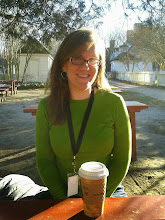I thoroughly enjoyed the Old Testament reading from the lectionary today. It wasn't one I remembered. It was from Numbers, and basically the Israelites are whining in the desert about how their food isn't tasty and God gets mad and sends snakes to bite them and they die. That is an Old Testament reading, right there. Of course, that isn't the end of the story--Moses intercedes and God gives Moses a bronze serpent to hold up for people to look at and be healed--but that part was less entertaining.
When I was younger I went through a phase of trying to read the whole Bible. It lasted through the New Testament (which I read first) and then about to the second half of Exodus. I did NOT find the Bible entertaining. That is partially because the second half of Exodus is simply not entertaining. But it's also partially because in my head, I read with this very serious and reverent voice, and Bible Voice doesn't lend itself to entertainment. The Bible and I started getting along a lot better when I realized I was allowed to laugh at it.
Being entertained doesn't always make for a good message though, and that's why I'm glad Kathy preached on the Numbers passage today. If you just leave it at the reading, without saying anything more, you might get a chuckle, but you're left with a kind of pissy God who sends snakes to bite people. Kathy talked about how we need those snakes sometimes, when we have the bronze serpent to heal us, so we don't forget what we've been through, so we don't get complacent. Stories like this one can speak to us. But we have to let go of Bible Voice and actually enjoy them, I think, to more fully understand how.
Subscribe to:
Post Comments (Atom)

I will read this blog entry at Bass's Lenten Study on How to Study the Bible. (i.e. think what it Did Mean, what it Does Mean, read different translations, use a Bible Dictionary, use a commentary, etc). It's a very good series.
ReplyDeleteAlso, Bass showed us books about the Bible. (History of the Bible in English, for example).
Two books were: The Bible in One Year, and The Bible in Two Years. These books guide a structured reading of the Bible, not necessarily in Biblical sequence)